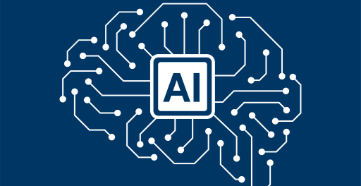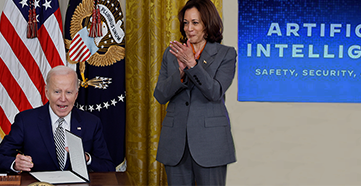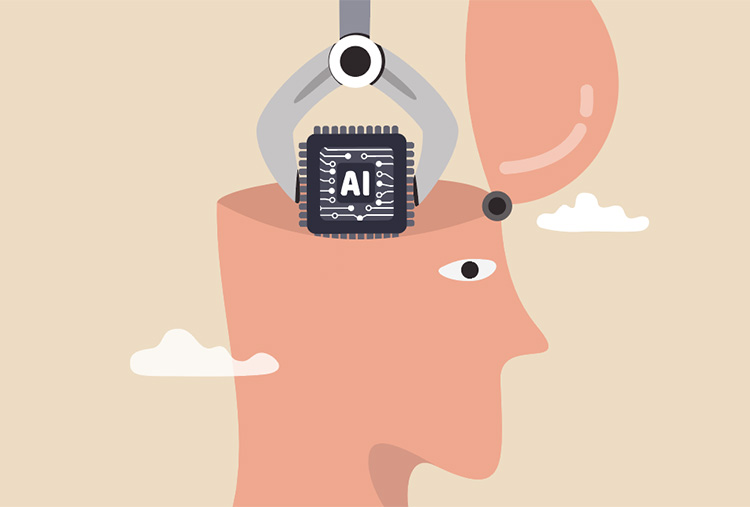|
|
Nov 29, 2024
AI, particularly generative AI, has the power to reshape the legal industry by automating repetitive tasks; improving accuracy; and allowing lawyers to focus on higher-value, strategic work. The potential is immense: firms can reduce costs; increase efficiency; and deliver better value to clients – all while driving firm profitability. But what does this shift mean for the largest employment sector for lawyers – firms themselves? Law firms now face a dual challenge: adopting AI to meet client expectations while ensuring junior lawyers are trained and equipped to thrive in an AI-enhanced legal landscape.
The IBA Technology Law Committee brings together lawyers addressing the evolving legal challenges of modern technologies. The Committee's mandate covers a wide range of tech-related areas, supported by eight subcommittees: AI and Robotics, Data Law, Technology Disputes, Fintech, Life Sciences, Outsourcing and Managed Services, Platforms, E-commerce & Social Media and Cybersecurity.
Each subcommittee focuses on specific issues, such as intellectual property, data protection, financial regulation, medical technologies, and cybersecurity, helping professionals navigate the complex legal landscape of emerging technologies.
Nov 02, 2023
The impact of artificial intelligence (AI) in the healthcare market are becoming increasingly more pronounced, indicating a turning point in modern medical practice. For example, in areas such as diagnosis, some machine learning tools have been shown to be more accurate in identifying pancreatic cysts harbouring cancer or at risk of cancer, than conventional clinical and imaging criteria alone, demonstrating the potential for AI to reduce costs and current rates of morbidity.
Nov 29, 2024
A company’s use of AI can place it in the crosshairs of multiple regulators simultaneously when things go wrong. In-House Perspective examines how legal teams can mitigate the risks.
Jan 13, 2025
The EU AI Act and beyond
Nov 22, 2023
Automation of legal processes has not led to the revolution many were predicting, but generative AI is expected to change all that. In-House Perspective looks at what’s on the horizon and how it’ll affect legal teams.
Nov 16, 2023
Artificial intelligence has come into its own in 2023. Global Insight discusses what this means for the future of the legal sector.
Jan 11, 2024
Through the rapid development of advanced AI systems, such as generative AI, however, the need for ensuring responsible AI has increased. In October 2023, the leaders of the Group of Seven (G7), chaired by Japan, agreed on the Hiroshima AI Process Comprehensive Policy Framework. The framework includes the adoption of the International Guiding Principles on AI and the International Code of Conduct for AI developers, based on the OECD’s report Towards a G7 Common Understanding on Generative AI.
Aug 02, 2021
The European Commission has demonstrated an extremely ambitious agenda for digital regulation with the publication of ground-breaking proposals to introduce new rules to regulate online platforms and govern the use of artificial intelligence (AI). These proposals, which are now under discussion in the European Parliament and Council, demonstrate a desire to set global standards for the regulation of digital platforms and services, and adopt legislation with extraterritorial reach to shape the way in which international companies conduct their business in the digital marketplace.
May 12, 2024
The growing use and popularity of generative artificial intelligence (AI) have presented the US Copyright Office and US courts with novel questions of copyright law. The Copyright Office has already begun addressing copyright registration applications involving AI while, at the same time, copyright infringement cases involving AI have begun working their way through our courts. The law is far from settled, but standards are materialising that can guide practitioners working in this rapidly evolving area of law.
Jan 22, 2024
The Bletchley AI Safety Summit united 28 nations over the necessity of regulatory policies relating to the safe development of artificial intelligence (AI).
Jun 01, 2023
The use of generative AI models, such as Midjourney, raises new and untested copyright issues. The World Intellectual Property Organization (WIPO) has identified numerous issues relating to copyright and AI, which warrant discussion. This article addresses a few of the issues in respect of establishing copyright protection in the UK for AI-generated works under section 9.3 of the Copyright, Designs and Patents Act.
Jun 01, 2023
A judge in a Pakistani court recently employed GPT-4, Open AI’s most advanced chatbot, to help render a judgment in a case. This decision sparked widespread debate regarding AI’s capabilities and the possibility of it replacing legal professionals, including judges. This article explores each aspect of the debate, as well as discussing the potential shortcomings and detriments of AI in a court of law.
Challenges for corporate tax counsel (2024)
May 17, 2023
This podcast examines issues of ethics, liability and applications of AI to the legal profession, as well as the challenges of implementing regulatory frameworks around AI.
IBA Maritime and Transport Law Committee Conference
Aug 02, 2021
The European Commission has taken a step forward in its strategy aimed at achieving a trustworthy artificial intelligence (AI) environment within the European Union (EU): on 21 April 2021, the European Commission published its proposed Regulation on Artificial Intelligence (draft Regulation). This article outlines this regulation, its requirements, penalties, data governance and future projections.
The Council of Europe’s Framework Convention marks the first major international effort to define the legitimate use of artificial intelligence. Global Insight assesses the Convention’s ambition, and its limits.
Nov 20, 2023
AI business strategist and former Head of Go-To-Market at Open AI, Zack Kass, discusses AI and the legal profession
This panel will review the refugee landscape in 2024, with a focus on the treatment of children and unaccompanied minors.
IBA Annual Conference Mexico City 2024
Nov 02, 2023
Advances in AI have ushered in a new era of innovation across sectors, with the healthcare sector being at the forefront of this transformative wave. With the increasing use of AI across various segments of the healthcare sector, challenges and ethical considerations arise, along with the need for human intervention. There remains a need for collaboration between industry experts and policy makers across jurisdictions such that the AI tools can be deployed responsibly and effectively.
But what does that mean for tax policy in 2025 and beyond? The roundtable will discuss recent and potential developments regarding the following topics:
- taxes on the wealthy (eg, billionaires’ tax, carried interest, capital gains, etc);
- Pillar Two implementation;
- Pillar One, digital service taxes and other bespoke excise taxes;
- the relationship between the branches of government;
- tax competition – is it alive or dead;
- the US is special – the Tax Cuts and Jobs Act expirations; and
- energy taxes (green and fossil sources).
14th Annual London Finance and Capital Markets Conference
Aug 24, 2022
Many companies expect a rise in legal disputes over the use and implementation of artificial intelligence (AI) and other technologies over the coming few years – even as they predict they’ll increase their spending in the area. In-House Perspective assesses what legal teams will face.
Sep 19, 2024
Chair, IBA AI Task Force
General outlook for corporate restructuring in Latin America: 2024 and the road ahead
Aug 18, 2024
Artificial intelligence (AI) technologies deployed in Australia largely originate from China, Europe, Japan and the US with these countries being the innovators in the AI field having the highest patent filings globally. The Australian Government has recognised that to take advantage of globally supplied AI technologies and to support safe AI development and adoption, regulatory and governance frameworks are required that are consistent with global regulatory approaches. Australia is a participant in a number of global forums on AI regulation and governance.
• How are AI systems and technology supporting operational compliance and creating new enforcement challenges?
IBA Global Challenges and Opportunities for the Asset Management Industry Conference
Aug 02, 2024
Antitrust authorities in the US are targeting the new frontier of AI for potential enforcement action
Artificial Intelligence (AI) is transforming markets, and regulators are trying to address potential market consolidation and harm before it happens. In this dynamic environment, businesses from all sides of the AI universe – AI model owners, AI app developers, AI business users, data owners, cloud infrastructure owners – need to understand the heightened scrutiny over investments in this sector and act in compliance with increasingly intrusive regulation and antitrust law.
This panel will discuss the issues that arise in AI creation and business use and regulators’ responses to AI including in the context of the new ex ante regimes in the European Union and United Kingdom, the approach of the United States and other jurisdictions around the world and discuss how divergences between jurisdictions might affect cross-border businesses.
IBA Annual Conference Toronto 2025
Apr 29, 2024
Advanced or disruptive technologies are reconfiguring the paradigm, providing innovative techniques that benefit the operations of border control agencies. This article explores the applications and benefits of implementing AI in health controlling authorities' risk assessment for the import of medical products, based on a recent Peruvian experience.
Part 1 - Sharing insights from SPPI's initial findings on the impact of AI's impact on Law Firms
Part 2 - Interactive roundtable session to get your insights on AI's impact on Law Firms
Open to all IBA officers.
By invitation only: IBA Mid-Year Leadership meetings 2024

Sep 27, 2023
The rise in popularity of generative artificial intelligence (‘generative AI’) has ignited the discussion on whether junior employees can be replaced by it. Some have gone to the extent of questioning whether professionals, such as lawyers, can also be replaced by generative AI. Is it wise to replace junior employees or lawyers with generative AI? What factors should be considered before deploying generative AI tools in your business? To consider these questions, we first need to understand the basic workings of generative AI and what it can offer. Fundamentally, AI is intelligence that is not biological. The general understanding is that machines will be ascribed with this intelligence. These machines have the ability to interpret, learn from and process external data in a way that is similar to the capabilities of the human mind. Generative AI is a type of AI program that generates content from a data set. It uses deep learning, a type of machine learning system that behaves like a neural network to simulate the functions of a human brain. In other words, it can mimic human intelligence by exhibiting analytical skills to create new content. Not only can generative AI be utilised in chatbot programs to create text, but it can also be used in programs that can create images, sound or videos. This article will consider two major forms of generative AI, in the context of risks to businesses: chatbots using generative pre-trained transformer technology programs; and image generating programs.
This panel will focus on the evolving global landscape of artificial intelligence (AI) regulation, examining centralised and decentralised frameworks and cross-border challenges.
IBA 6th Silicon Hills Conference – the Tech Epicentre of Texas: from Start-Up to Exit
Aug 23, 2023
The lack of a harmonised approach to regulating artificial intelligence will create difficulties for companies and their in-house legal teams, as In-House Perspective reports.
In line with the tradition to revise the Guidelines every 10 years, an updated version has been published in 2024. The overall structure of the Guidelines has not changed, including the well-known traffic-light system of red, orange and green lists, which has become a worldwide norm. Nonetheless, the 2024 guidelines innovate in many respects. A group of experts will discuss the revision process, the changes made – as well as those discussed but eventually not retained.
IBA Annual Conference Mexico City 2024
Nov 23, 2022
The Covid-19 pandemic accelerated the deployment of artificial intelligence tools in the workplace, in roles such as employee monitoring. In-house teams must ensure that employees are protected, however – and mitigate the legal risks to their organisations – as In-House Perspective reports.
We hear about the productivity and profitability gains of generative AI. But how are Immigration lawyers harnessing this new technology and using in practice in their firms? This panel will look at real examples of AI use cases in practice, what technologies are being deployed in client work, RFPs and client relationship management. We will explore some of the ethical issues which arise for immigration lawyers, to what extent clients know that AI is being used, as well as GDPR/Data Privacy issues involved and practice management implications on,for example, the training of junior staff.
11th Biennial IBA Global Immigration Conference
Oct 21, 2022
This article introduces the principles China adopts to address ethical issues in ‘AI+life science’ applications and how China regulates certain specific ethical issues.
Irregular arrivals at borders are a feature of 21st century migration. While their overall numbers remain a small proportion of those applying for international protection, many governments, both national and supranational have sought to find new solutions, often with the clear intention of stemming the tide of populist anti-immigrant sentiments being converted into votes for far-right parties. But how far can these solutions go without taking away the very essence of the right to asylum?
11th Biennial IBA Global Immigration Conference
Advances in artificial intelligence (AI) have led to the rise of products aimed at facilitating the work of international arbitration practitioners. This article discusses the question of diversity in international arbitration and whether AI technology can help to bridge the diversity gap apparent in arbitral tribunals.
Join a panel of thought leaders in exploring current and future implications of artificial intelligence (AI), with discussion ranging from the regulation of AI to how AI can be used as a force for good.
IBA 5th Silicon Beach Conference: From Start-Up to Exit
Jul 10, 2024
Data center electricity usage could double by 2026, making the challenge for companies to become net zero increasingly unattainable
Apr 12, 2024
Among the various aspects of the EU artificial intelligence (AI) regulation (“the ‘AI Act’), that of the foundation models was one of the most controversial and contentious of the entire interinstitutional negotiation, capable right up until the end of derailing the agreement in the trilogue and spreading uncertainty even up to the date of the definitive approval by part of the Committee of the Permanent Representatives of the Governments of the Member States to the European Union (Coreper) on 2 February 2024.
Attracting and retaining the best talent is an ongoing challenge for law firms and legal departments. The rapidly moving situation naturally provides opportunities for the prime performers. The panel will address salaries, benefits, flexibility and career progression. This conversation should be of interest to all entities seeking to recruit or grow during the coming year.
IBA Middle East Conference: Law firms and clients working together
Apr 04, 2024
Generative AI is a powerful new tool in the hands of wrongdoers, including fraudsters, thus creating new risks for businesses. This technology can mimic human language, images and biometric data beyond a point where even another machine can distinguish between what is real and what is AI-generated. It can engage targets in automated, conversation-style interactions which maximise the potential for deception. And it can be programmed to do this at scale. This article explores these risks and suggests ways they can be mitigated.
IBA Global Challenges and Opportunities for the Asset Management Industry Conference
|











































